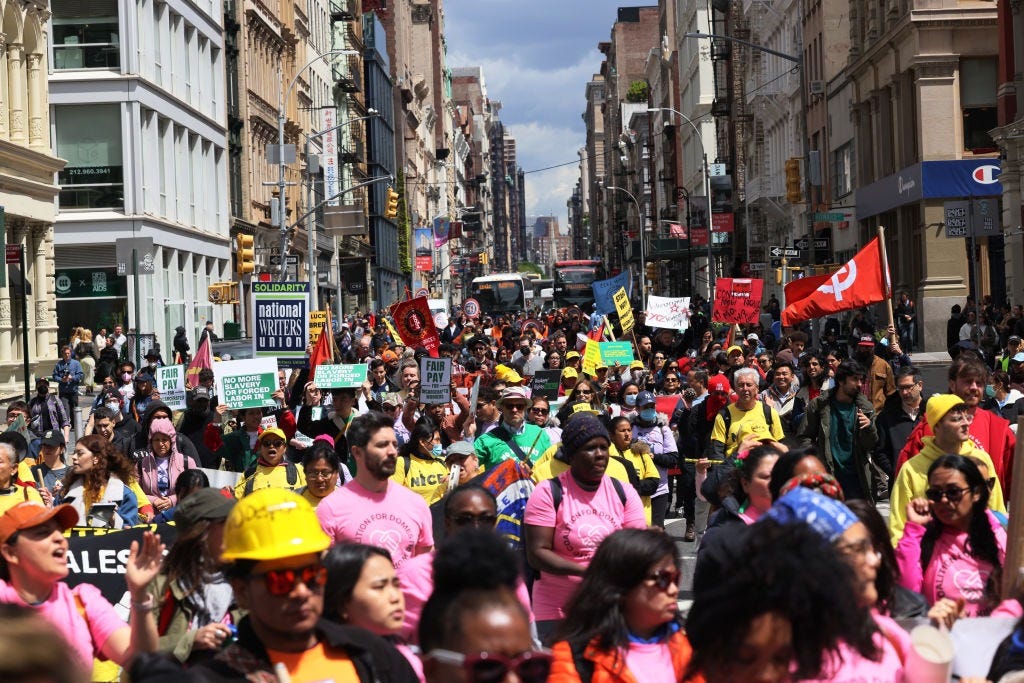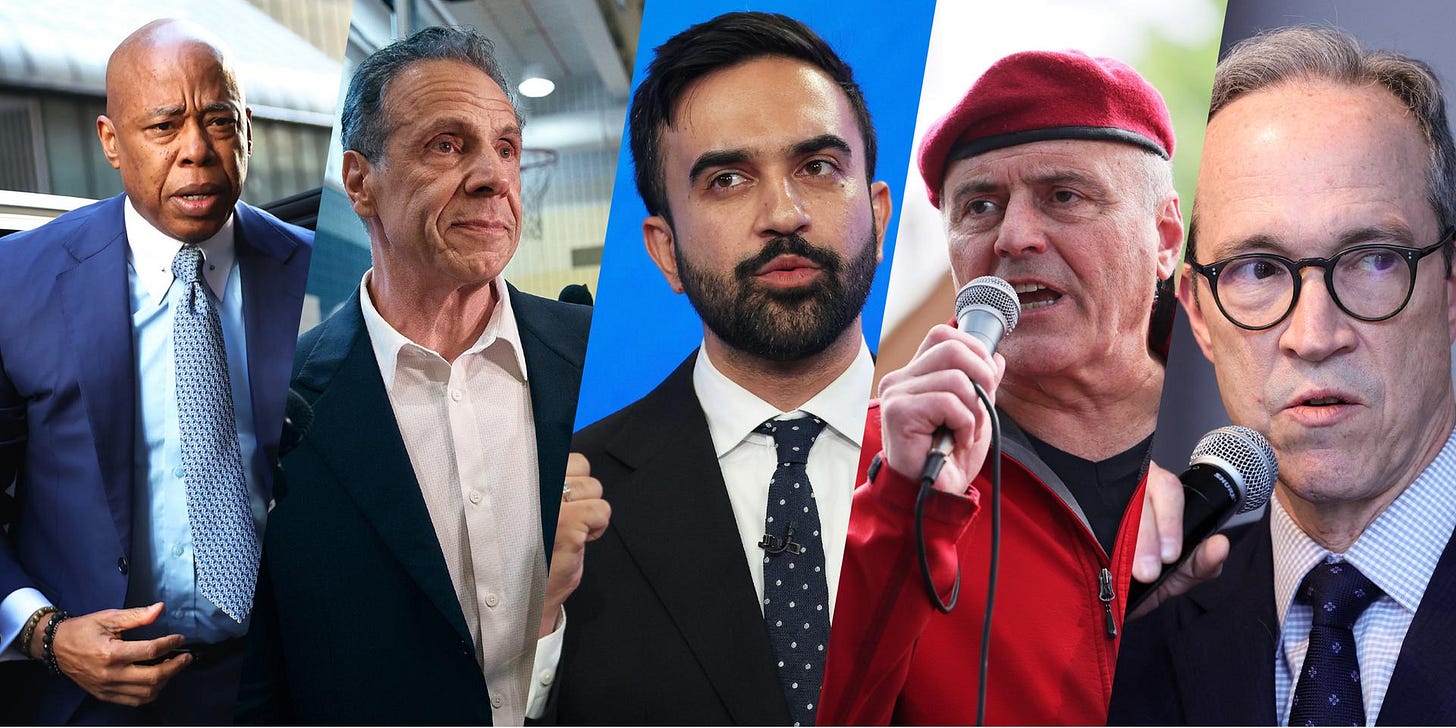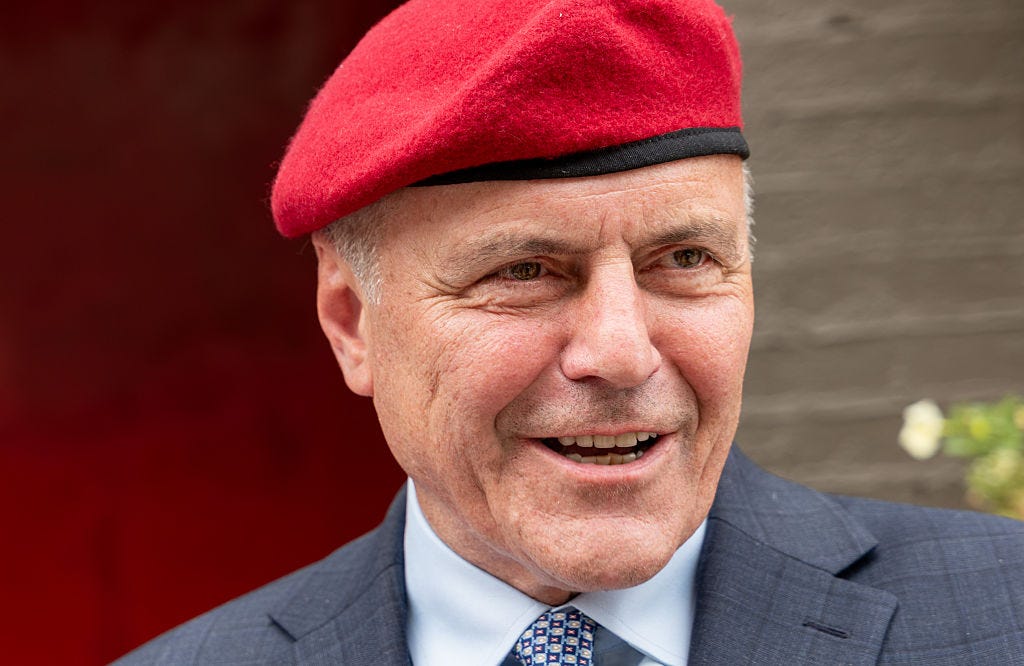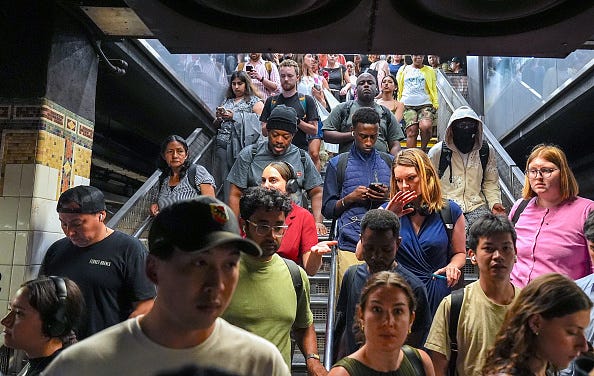Mamdani's New Labor, Sliwa On The Record
The way we work is changing rapidly, with political and practical implications for cities.
Happy almost Labor Day!
The way we work is changing rapidly, with political and practical implications for cities. As a mayoral candidate who presents himself as speaking for the “working class” continues to rise, it’s a good time to ask: Who is he talking about?
In the age of automated taxis, AI, and the gig economy, an older notion of the proletariat is being reshaped into an amorphous class of workers who feel that they have even less security, ownership, and bargaining power, tied not to stable jobs but to platforms and algorithms that control their livelihoods.
For millennials, this is the defining feature of adulthood. Many were sold a vision of autonomy: freelance media, design gigs, startups, delivery apps, academic flexibility. The “creative class,” as Richard Florida described it two decades ago, would thrive on risk-taking and urban energy. These workers traded stability for what they thought would be freedom.
But the math no longer works, at least in New York. Zohran Mamdani’s voters’ housing costs outstrip their wages. Their student debt is absorbing their disposable income. For many workers, the new platforms provide work without a safety net. And AI now threatens to hollow out the very professions — writing, illustration, coding — that once distinguished this group from the traditional working class. What was once framed as independence increasingly looks like insecurity.
Older voters may hear utopianism in Mamdani’s agenda. His supporters hear realism. When he champions app workers or tenants, he is not speaking to some distant proletariat but to his peers — educated, urban millennials who find themselves renting into middle age, stringing together gigs, and staring down an economic future narrower than their parents’.
The problem with this kind of populism is that describing a problem isn’t the same as fixing it. Cities that ignore the frustrations of this new proletariat will fuel radical politics. But cities that promise the impossible — permanent rent freezes, public groceries — will only deepen disillusionment.
The harder but more durable path is to take the grievances seriously while pursuing reforms that expand opportunity: build more housing so renters can become owners, pilot voluntary portable benefits for gig and freelance workers, expand childcare options and improve transit reliability to stabilize families, and treat AI not as an enemy but as a tool to boost productivity while policing genuine abuses.
Campaign Update
Campaign season will kick into full gear come September, but meanwhile, Mamdani organized an adult scavenger hunt, Adams is dealing with a former advisor and campaign volunteer handing cash to a reporter (stuffed in a bag of chips) and indictments of former administration officials, and Cuomo is fighting off a harassment-related lawsuit.
If you want to see all the candidates and just about every NYC elected official in one place, head to the West Indian Day Parade on Eastern Parkway in Brooklyn on Labor Day.
Calendar: The first mayoral debate will be on Thursday, Oct. 16, at 7 p.m. and broadcast on NBC 4. The second, leading contender mayoral debate will be on Wednesday, Oct. 22, at 7 p.m. and will be broadcast on WNYC and NY1.
Curtis Sliwa: Law-and-Order Republican, Bureaucracy Buster
To better understand their platforms and positions, MI is extending invitations to all mayoral candidates to talk to us on the record. Monday, Republican mayoral candidate Curtis Sliwa stopped by our office, and you can read the full transcript, here.
Curtis Sliwa delivered a forceful critique of City Hall, casting himself as the candidate to break the status quo. Though he has said President Trump should stay out of the race, and at one point criticized Mayor Adams as Trump’s puppet, he embraced the president's positions on cashless bail, immigration, and cost-cutting, while calling for a gradual implementation of the latter. In our conversation, Sliwa told us: “I’m the only person who voted for Donald Trump. I campaigned for Donald Trump.” He called for a law-and-order reset, including ending the 2019 cashless bail rules, hiring 7,000 officers, restoring the NYPD’s homeless outreach unit, and deploying more officers on moving subway trains.
On immigration, Sliwa opposes New York’s sanctuary-city policy and wants voters to decide the question via charter revision. He says ICE should have an office at Rikers for post-conviction transfers, while acknowledging many migrants fill crucial restaurant and hotel jobs and urging federal policymakers to consider a legal status aligned with local labor needs.
Housing, he says, should start with practical steps, not megaprojects: open up roughly 6,000 unoccupied NYCHA apartments and speed the return of other vacant subsidized units by clearing housing-court backlogs and partnering with owners. On schools and finances, he’d shift dollars from central offices to classrooms, expand career-technical programs, rebuild reserves, provide outer-borough property-tax relief, and trim bureaucracy. Management-wise, Sliwa touts a delegation-first approach drawn from his experience founding and running the Guardian Angels.
Not Hiring
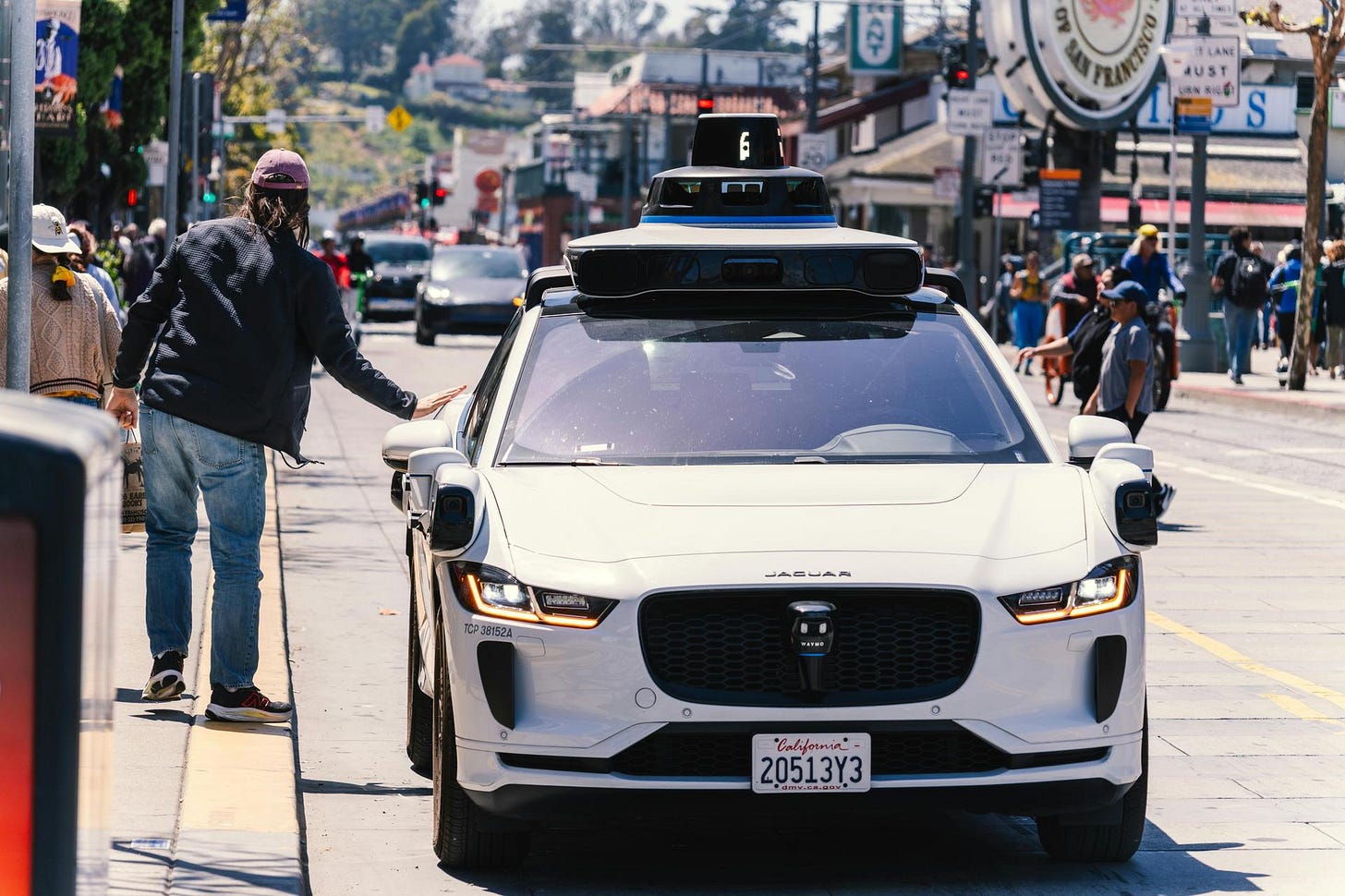
When jobs slow, household spending, street life, and tax revenues soften, and debates over tech, transit, and housing get sharper. On that note, here are some recent stories to consider:
Not Hiring. NYC added fewer than 1,000 private-sector jobs in the first half of the year—the slowest non-recession, non-pandemic first half since 2003. A year ago, it added 66,000; now, finance/insurance, hospitality, and retail are losing jobs, the city says. (NYT gift link, Crain's)
Possible 'He-cession'. The U.S. job market is holding up overall, but young men are the big exception: in July, unemployment for men ages 20–24 was 8.3% (about double young women's), and recent college grads were at 5.3%. If hiring stays slow and managers start using AI in place of entry-level work, a short-term dip could harden into a longer-term "he-cession." (MI's Allison Schrager in Bloomberg).
Don't call it a #tradwife wave yet. Matt Yglesias argues the dip in working mothers is an early warning of a softening job market—driven by tariffs, inflation, and slower demand—rather than a cultural shift toward traditional roles, responding to Abha Bhattarai's Washington Post piece. (Yglesias, WaPo)
The State of Job Quality in New York City (NYC Comptroller's Office, 2025)
New York City Jobs Data Shine Light on NYC's Economic Strengths and Weaknesses (Manhattan Institute, 2024)
Sorry, New York. The Era of the Big City May Be Over. As technology becomes more ubiquitous and their housing becomes more unaffordable, large U.S. cities could enter a cycle of decline. (Allison Schrager in Bloomberg)
$30 Minimum Wage Implications
Zohran Mamdani's $30 minimum wage proposal could throw New York City's economy for a loop, writes Vital City's Josh Greenman.
Mamdani's proposal to raise New York City's minimum wage to $30 by 2030 — an 82% jump from today's $16.50 — would make it one of the most ambitious wage hikes anywhere, effectively putting the floor on par with the city's median wage of $28–$30.
While past, more gradual increases have boosted earnings without major job losses, economists caution that pushing the minimum so high risks cuts to jobs and hours, higher prices, and major fiscal strain.
The impact would be especially acute in care work, which employs nearly 6% of New Yorkers and relies heavily on household budgets and Medicaid funding. Here, higher wages land directly on families or taxpayers, magnifying the tension between Mamdani's promises to ease living costs and the likelihood that his wage plan would make New York more expensive.
Read his full analysis, and a take on this from MI.
Other News
Schools — It's back to school, as the city scrambles to hire thousands more teachers to comply with class size mandates, and gets ready to collect hundreds of thousands of cell phones when students return next Thursday.
Transportation & Jobs — NYC just okayed Waymo—owned by Google parent Alphabet—to test up to eight self-driving cars through late September in parts of Manhattan (south of Central Park) and Downtown Brooklyn, with a human safety driver and no passenger pickups. Street-advocacy group Open Plans and taxi/livery drivers are urging the city to halt the trial over safety and job-loss concerns. (Gothamist)
Housing & Cost of Living — With fewer renters than ever having a living room, this is why the death of the communal space matters. (Independent)


